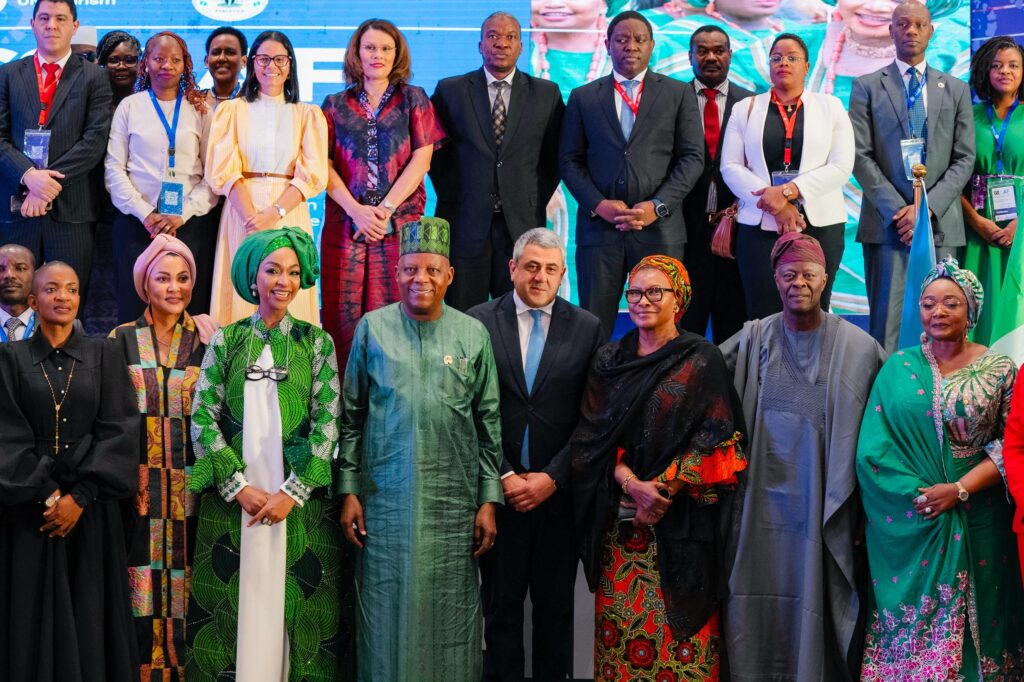President Bola Ahmed Tinubu GCFR recently appealed to African nations to adopt sustainable eco-friendly tourism, policies and investments that will preserve the continent’s cultural heritage, and unlock its vast tourism potential.
The message was delivered by Vice President Senator Kashim Shettima GCON, at the official opening of the 68th United Nations Tourism Commission for Africa (CAF) held in Abuja from 11th to 13th June 2025.

Speaking about the event’s theme: “Boosting Social Impact and Education in Tourism via Innovation, AI, and Creative Industries in Africa.”; President Tinubu emphasized the urgent need for collaboration among African nations, regional blocs, and international organizations including the African Union (AU), ECOWAS, and UN Tourism to develop frameworks that promote sustainable tourism and preserve Africa’s rich cultural identity.
By collaborating with regional bodies such as the African Union, ECOWAS, and UN Tourism, Nigeria encourages other African nations to adopt policies promoting eco-friendly tourism and preserving cultural heritage,” he stated.
“This collaboration includes sharing best practices, tourism training, developing joint marketing campaigns for sustainable tourism, and improving infrastructure to support intra-African travel. Through these regional initiatives, Africa can foster a continent-wide movement toward tourism that benefits both the people and the environment, driving long-term prosperity for Africa.”
The President further emphasized that tourism is not just about visiting waterfalls, mountains, or historic sites, but a strategic driver of economic diversification, job creation, cultural diplomacy, and sustainable development.
Spotlighting Nigeria’s creative economy as a framework, President Tinubu stated that “Nigeria’s Nollywood is one of the largest film industries in the world, generating substantial revenue from domestic and international markets. Similarly, the music and fashion industries have propelled Nigeria’s global cultural influence and generated income and employment opportunities,”
The President also urged African nations to “focus on practical solutions and collaborative strategies that will strengthen intra-African travel, boost investment in tourism infrastructure, empower local communities, and deepen tourism’s role in achieving the Sustainable Development Goals (SDGs) and making African tourism the heart of the global conversation.”
The Honourable Minister of Art, Culture, Tourism and the Creative Economy, Hannatu Musa Musawa Esq, described the forum as a pivotal moment in the continent’s journey. She addressed the need to scale Africa’s contribution to global tourism revenues and creative exports, disclosing that although global tourism is currently valued around $11 trillion, Africa contributes less than 5% of that figure.“This is not a deficit or a scarcity of talent,” she said.
“Today, Nigeria invites Africa to close that gap. I am passionate about Nigeria and the mission and commitment of President Tinubu. I believe in it because of his vision for Nigeria, which I believe will enable the country to take a seat in the comity of global nations as a developed nation. I pray the same for every African nation and urge us all to rise together,” she said.
Also speaking at the event, the UN Tourism Secretary-General, Ambassador Zurab Pololikashvili, praised Nigeria for its commitment and leadership in the sector, describing Africa as the next frontier of global tourism innovation.He also encouraged African leaders to prioritize and address issues related to regional connectivity and movement by reviewing and improving existing visa regulations across the continent.
The Senator representing the Federal Capital Territory, Senator Ireti Kingibe, also encouraged African leaders to accept leadership and prioritize the continent’s role in global tourism.
She disclosed that “Africa is shaping the digital future of tourism, and Nigeria, with immense creativity and cultural wealth, stands ready to lead. The culture and resilience of Africans, when combined with emerging technology such as AI and immersive media, can redefine Africa. Today’s gathering is an opportunity to amplify the stories of home-grown innovations that attract tourists from the grassroots to the global stage. Let us use this space to exchange best practices, build cross-border collaborations, and generate actionable strategies that place communities, especially women and youths, at the heart of our development agenda,” she concluded.